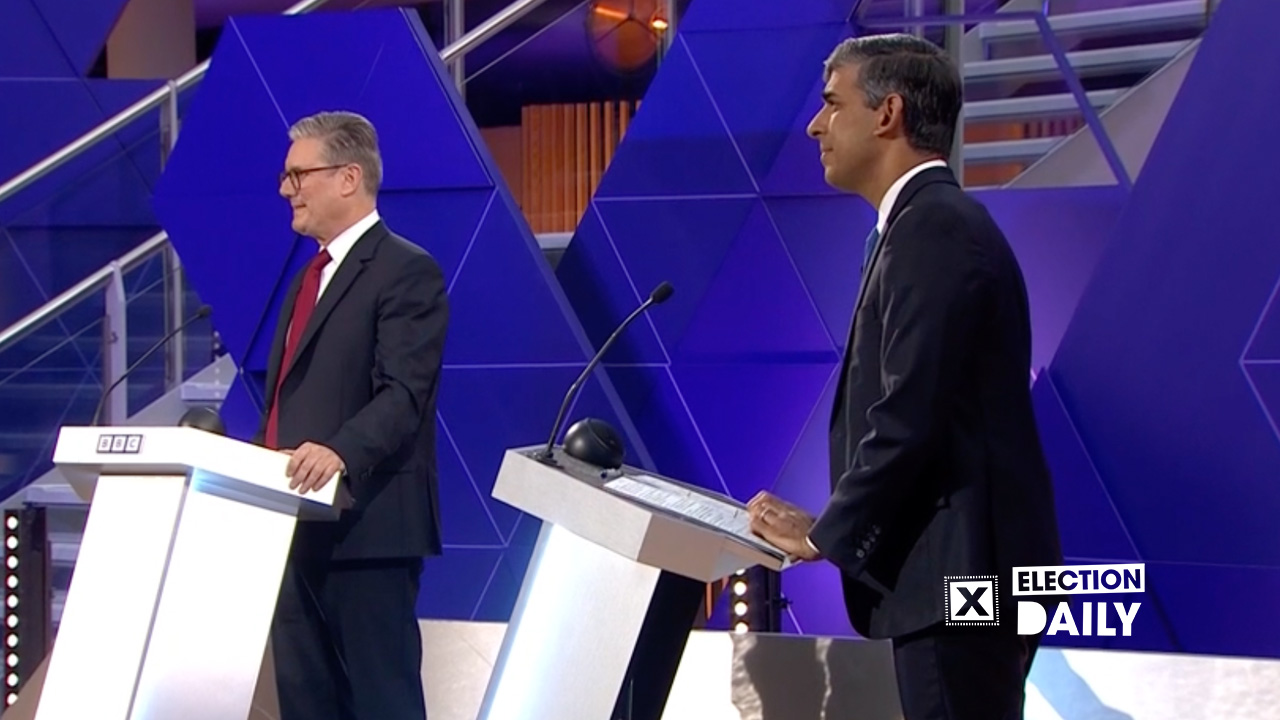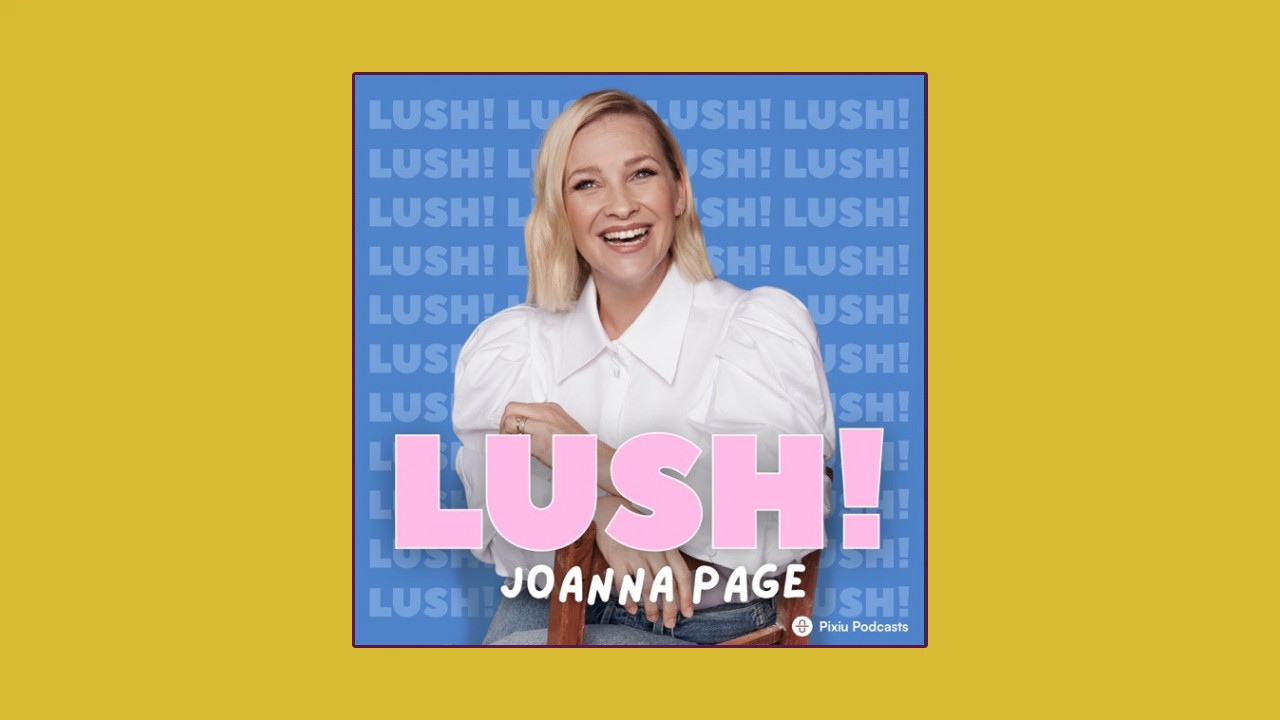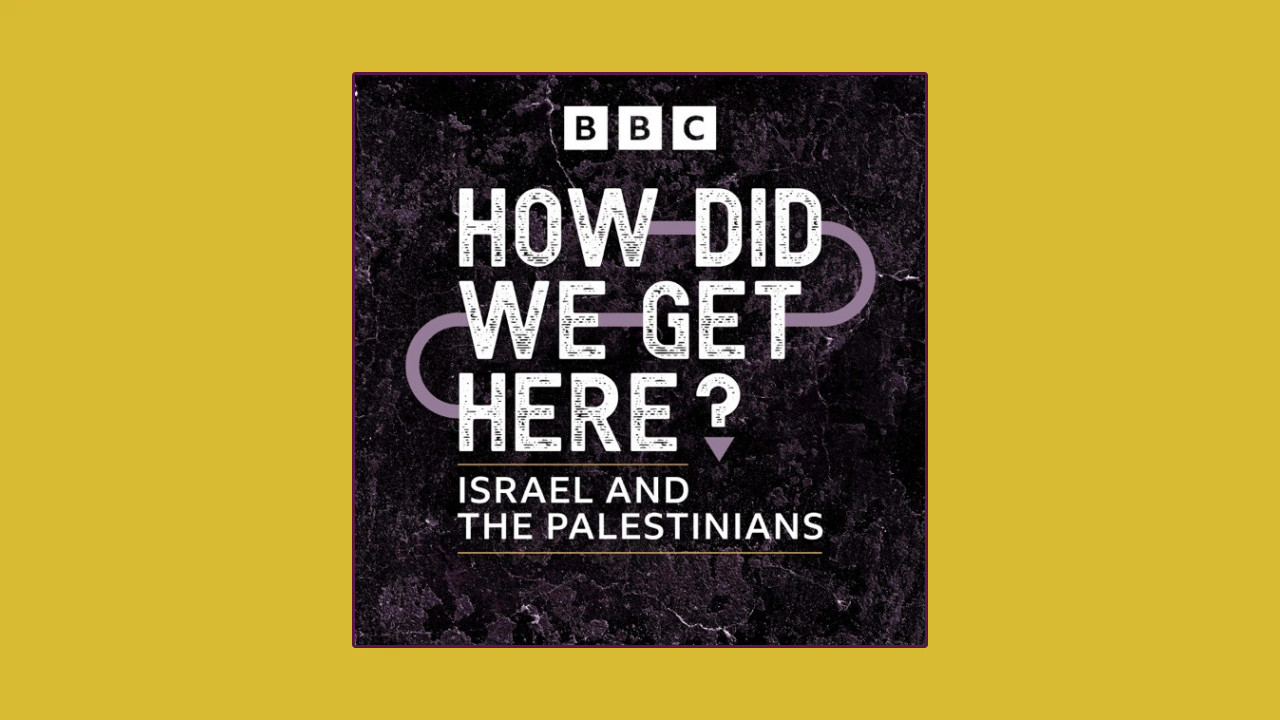Rishi Sunak and Keir Starmer went head to head last night in the last televised debate before the election. And it was a surprisingly ill-tempered performance from both of them.
Starmer "launched a fierce attack" on the culture at the top of the Conservative Party for their slow response to the election betting scandal, said The Guardian. Meanwhile, the PM responded by "repeatedly accusing Starmer of planning tax rises and having no plan to deal with illegal immigration", said the BBC.
In the end, "just like England at the Euros… the debate was a draw", said Sky News's chief political correspondent Jon Craig. He's not wrong. The result was 50%-50% exactly, according to pollsters YouGov.
So, as we enter the knock-out stages of the election, will either side actually put in a strong performance or will it all be decided by own goals?
Here's how the nation's news podcaster's scored last night's debate:
Politics Weekly: Journalists Pippa Crerar and Kiran Stacey dissect the TV head-to-head for The Guardian. "It was Starmer who came off looking like he didn't have the answers," says Stacey. "And I think the reason for that is because people are holding him to a higher standard now, realising that he is going to have to implement this stuff." Good point.
The Rest is Politics: So who won the debate then, ask Rory Stewart and Alistair Campbell. Did Rishi Sunak's more aggressive tactics pay dividends? "What was sad about Sunak's performance was that there were several clap lines in what he was delivering that just didn't work", says Campbell. And what will Team Starmer make of his performance in Nottingham, they ask. "Neither of them seemed convincing," is Stewart's fairly withering assessment.
The Election Shortcut with Kate McCann: McCann talks to Patrick English from pollster YouGov and Ryan Sabey, the deputy political editor of The Sun about the debate. "The best thing about this election campaign is that you are seeing [the party leaders] head to head," says Sabey. And that is useful because "there are still a lot of undecided voters". Accordingly, up and down the country, he says, there are going to be a lot of seats that are a lot more hotly contested than the polling might currently suggest. Possibly true, but it still feels like those close contests probably won't decide the election.
BBC Newscast: Today, Newscast comes to us from the spin room at the BBC debate. It still seems funny to me that there is an accepted space that is known as the "spin room". Anyway, Adam Fleming is joined by Laura Kuenssberg and Chris Mason for the final big set piece moment of the campaign and they have lots of good stuff to say about how it all went. Direct from the room of obfuscation and deceitfulness.
Coffee House Shots: Isabel Hardman, Katy Balls and Patrick Gibbons are also looking at the debate. Balls says that if Starmer were a woman, Sunak would have been "accused of mansplaining". He wants to "land the idea that if you have even an ounce of doubt about Labour don't vote for them. But also, perhaps Rishi Sunak is thinking a bit about legacy." Much truth in this.
The Political Fourcast: Gamblegate is the subject of today's Political Fourcast as Ed Davey has now joined Keir Starmer and Rishi Sunak scrambling to check who in their party could get caught up in the saga. "But is this story on the scale of the expenses scandal or Partygate or is it all just a bit of juvenile stupidity?" Krishnan Guru-Murthy asks. He discusses it all with a good line-up including Conservative Home's Henry Hill, pollster Scarlett Maguire and Channel 4's senior political correspondent Paul McNamara.
The Today Podcast: Another day, another bunch of polls. But how useful are they in giving a sense of what will happen next week? To answer this question, Amol Rajan and Nick Robinson turn to the only person any of us should ever listen to on such matters; the doyenne of polling, psephologist Prof Sir John Curtice. The Prof discusses where the term "supermajority" came from and whether we should all be sceptical about poll findings. The team also assesses how the smaller parties’ campaigns are stacking up, which, on a day dominated by the two men at the top of the country's two biggest parties, is definitely worth a listen.
The Daily T: Can Labour actually decarbonise the energy grid? The plan will cost "hundreds of billions" of pounds, according to shadow chief secretary to the treasury Darren Jones, talking to The Telegraph. The paper's associate editor Gordon Rayner joins Camilla Tominey and Kamal Ahmed to ask "is Labour keeping secret the real cost of its net zero plans?" Plus they wade into the Kemi Badenoch vs Dr Who row. If you missed it, basically Badenoch has exchanged words with David Tennant over gender, after the actor said he wishes she would “shut up” and “did not exist anymore”. Plenty of fun culture wars stuff to be found here, if you are up for that kind of thing.
For Fact's Sake: This is fun. Today's show by the team from The Ferret looks at all the sensible things, but also has a good segment about the conspiracy theories that are doing the rounds at the moment, many of them focussed on the all-seeing, all-knowing World Economic Forum. Did you know, for example, that the international non-governmental organisation planned and managed the Covid-19 pandemic? The Ferret team draws parallels between the wilder fringes of the conspiracy theory world and the campaign of Nigel Farage. "One of the main pillars of the Nigel Farage ideology and his offer to voters is that idea that there is a supranational organisation that is trying to influence Britain and [Farage] wants Britain to have control of its borders and its laws," they say. A nicely put together show, with an excellent name (and acronym). Thanks to Alastair Tibbitt for the heads up. If you want to recommend a show to me, please do! I'm at arion@podcastrex.com.
The Story: Listen, I don't want to say Britain's politics is inconsequential in global terms. Obviously, it is not. But arguably the bigger debate this week is the one happening in the US tonight between Donald Trump and Joe Biden. This is going to be the first of only two presidential debates between the two oldest candidates in history, both of whom have a lot to prove. Could this debate prove pivotal for the campaign ahead – and the November election itself, ask The Times team? A nice primer on what to expect.
And now for something completely different…
How We Fix This: The problem with climate news is that it's all just so grim. Glaciers receding, oceans rising, freak weather and so on. It is so awful it is hard to focus on. This is likely the reason that so many people tune out, and as an editor of a news and current affairs publication, I can tell you that this is definitely the case. How We Fix It, then, is a good corrective to precisely that problem. Presented by the outrageously talented Swedish actor Alexander Skarsgård, the show is all about solutions not just problems. From cocoa-less chocolate to carbon-free cement, this series looks at how people around the world are tackling the climate crisis in entirely unexpected ways. This week's episode is all about the people trying to make cows burp and fart less. Why? Because we have around one billion cows on the planet and they produce a staggering 10% of all emissions. There are few topics more important than climate change, and this is an excellent and digestible approach to it all.






